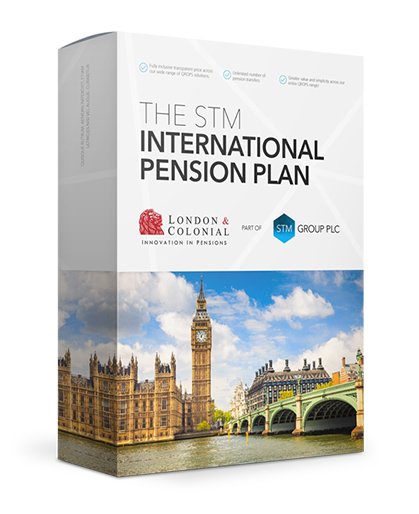
WELCOME TO MALTA
Malta is internationally recognised as a jurisdiction providing excellence in financial services and enjoys an extensive network of double tax agreements with more than seventy countries.
REQUEST PRODUCT INFORMATION
ABOUT MALTA
Malta is situated at the strategic heart of the Mediterranean within easy reach of Europe, Africa, the Middle East, and Asia. It is an independent republic, a full member of the Commonwealth and the European Union, including the Eurozone, and has its own combined civil and common law-based system while also being subject to all EU Directives.
Malta is internationally recognised as a jurisdiction providing excellence in financial services. It offers an attractive cost and tax-efficient base for clients looking for an EU-compliant, yet flexible, domicile. It has its own efficient taxation regime and enjoys an extensive network of double-taxation agreements with more than seventy countries from Australia to the USA. Malta is a corner-stone of efficient structuring options for our EU and world-wide clients and offers itself as an excellent jurisdiction for companies and individuals seeking to protect their wealth.
FURTHER INFORMATION
If you would like further details on our products or services, please contact us on the details below:

STM Malta Pension Services Limited
San Gwakkin Building
Level 1
Triq is-Salib tal-Imriehel
Zone 4
Central Business District
Birkirkara, CBD4020
Malta
Tel: 00356 213 33210
info@stmmalta.com
STM Malta Pension Services Limited is registered as a Retirement Scheme Administrator with the Malta Financial Services Authority. It is also authorised to act as trustee or co-trustee to provide fiduciary services in terms of the Trusts and Trustees Act.
AVAILABLE SERVICES AND COMPANIES IN MALTA
The STM Malta Employee Incentive Plan (THE PLAN) is a flexible and tax efficient method of providing long-term benefits to staff which are aligned with the company’s business objectives.
Click here to request product information
With a number of QROPS providers to choose from, clients and their advisers need to ensure they choose an established, quality service provider with the commitment and longevity to administer funds for the entire term of the pension. As a company listed on the London Stock Exchange, and with schemes in the key jurisdictions of Malta and Gibraltar, STM are world leaders in the field of pensions.
STM provide pension solutions to companies and individuals resident in Malta and to internationally-mobile individuals through STM Malta Pension Services Limited.
One of the more recent newcomers to the QROPS arena and, with the added benefit of being a member of the EU, Malta has a wide number of double-taxation agreements, coupled with a sound financial services framework, good corporate governance, and solid regulation.
VAT is not applicable to Trustee services in Malta. Withholding tax of up to 35% is levied on countries that either have no DTA or a limited/remittance-based agreement. Up to 25% pension commencement lump-sum can be taken from age 55 from UK transferred funds. Further information can be obtained upon request.
We provide a complete pension transfer solution for both EU and non-EU residents alike, making the most of over 70 double-taxation agreements Malta has in place with other countries.
Our range of products available from Malta include:
QROPS & QNUPS
Packaged QROPS products utilising our own in-house life assurance company (STM Life)
QNUPS – available to UK or non-UK residents
EURBS – available in other EU countries
US QROPS for those resident in the United States
US Expat Plan
We employ numerous technical specialists and invest in product development to ensure the delivery of innovative and global solutions to both clients and intermediary partners.
REQUEST INFO ABOUT INTERNATIONAL PENSIONS NOWFor individuals with an Irish occupational pension scheme, who no longer live in Ireland, there may be advantages gained by transferring their pension fund to the STM Protected Retirement Plan in Malta.
FLEXIBILITY UPON RETIREMENT:
Select your own retirement age between 50 and 75
Take an initial lump sum of up to 30% of pension plan value
Decide from a variety of income drawdown options on retirement, e.g. fund annuity plus additional lump sums from larger funds
Request pension payments in local currency where you live
No requirement to purchase annuity on retirement
INVESTMENT CHOICES:
Use your preferred investment manager and adviser
Access a wide range of investment opportunities
Invest in the currency of your choice
TAXATION:
No Maltese taxes on income or gains within your pension fund. Tax advice required for country where investments are located
On pension payments to you, tax in your country of residence to be considered. Consult any relevant Double Tax Agreement
No Irish income tax or Irish universal social charge deducted at source on pension payments to you
No death taxes in Malta or Ireland on your fund, although Irish Capital Acquisitions Tax may apply if your beneficiary is resident in Ireland. Death / Inheritance tax may apply in the country of residence of your beneficiary
TO APPLY, AN INDIVIDUAL MUST:
Be a member of an Irish occupational pension scheme with a transferable preserved benefit where the qualifying service in employment relating to the scheme exceeded two years and terminated (otherwise than on death) before normal pensionable date
Wish to transfer that pension for bona fide reasons (e.g. retiring overseas and want to consolidate pensions) and not for the purpose of circumventing Irish pension rules and conditions
Be tax resident outside Ireland and intend to remain outside Ireland
Have no intention to retire in Ireland
NEXT STEP
Please request information on our simple 3-step application process and how your clients could benefit from transferring their Irish occupational pension into the STM Malta’s EURBS.
Request info about EURBS now SFDR Disclosures
STM Malta Pension Services Ltd (“STM Malta”) is a Financial Market Participant under the SFDR. In accordance with SFDR, STM Malta, as a Retirement Scheme Administrator (“RSA”) and Trustee, is required to provide disclosures on how it considers sustainability risks and the impact of Environmental, Social, and Corporate Governance (“ESG”) factors for both the Personal Retirement Schemes and the Occupational Retirement Scheme it administers.
Personal Retirement Schemes
STM Malta’s Personal Retirement Schemes are all Member-directed schemes, meaning that investments decisions are generally agreed between the Member and the appointed Investment Advisor or Investment Manager. All directions are to be received by the STM Malta through the Investment Advisor and signed by the Member, or by the Investment Manager. It is STM Malta’s role as the RSA to receive and review these instructions to ensure that the investments are suitable for the Member and in line with the investment restrictions set out in the Pension Rules, but STM Malta does not assess the proposed investments to determine whether they take into consideration Sustainability Risks, ESG Factors, or the Principal Adverse Impacts of investment decisions on Sustainability Factors and whether such investments comply with their respective regulations. However, STM Malta supports any initiative taken by the Members to take Sustainability Risks, ESG Factors, and/or Principal Adverse Impacts into account in their personal investment policy as agreed with their Investment Advisor/Investment Manager.
Remuneration Policy
The SFDR requires the RSA to include in their remuneration policy information on how this policy is consistent with the integration of sustainability risks.
STM Malta has a fixed remuneration strategy unless it is justified following a performance assessment based on quantitative and qualitative criteria on the entity and personal level. In this respect, STM Malta views its remuneration structure to be consistent with the integration of sustainability risks, as the remuneration policy does not encourage risk-taking with respect to sustainability risks and/or is linked to risk-adjusted performance.
Occupational Retirement Scheme
The Occupational Retirement Scheme is managed by the appointed Investment Manager in accordance with the investment strategy and within the parameters of the applicable investment restrictions, as set out in the Scheme Particulars. STM Malta’s position is that it does not consider Sustainability Risks, ESG Factors, or the Principal Adverse Impacts of investment decisions on Sustainability Factors in respect of the Occupational Retirement Scheme. The Scheme is managed by the appointed Investment Manager, meaning that decisions are taken by the Investment Manager in accordance with the investment strategies and investment restrictions of the Scheme, as set out in the Scheme Particulars. The Investment Manager does not consider Sustainability Risks, ESG Factors, or the Principal Adverse Impacts of its investment decisions for the following reasons:
- The Scheme’s overriding objective is to always obtain the best possible return for its Members within the Scheme’s stated risk tolerances and regulatory constraints. Given the limitation in the variety, number and performance of investments that consider Sustainability Risks, ESG Factors, and Principal Adverse Impacts, it is not in the best interest of the Scheme’s performance and Members for the Investment Manager to limit the pool of investments that may be chosen for the Scheme.
- The investment process takes into account the very defined nature of the investment strategy and investment restrictions which significantly limit the type of investment that the Scheme may be invested in as this is deemed to be in the best interest of the Scheme and its Members.
- In view of the current size of the Scheme, the Investment Manager prioritises the investment strategies of the Scheme, without further limitations being posed by Sustainability Risks, ESG Factors, or Principal Adverse Impacts considerations.
- Any considerations made towards Sustainability Risks, ESG Factors, or Principal Adverse Impacts would require the availability and consistency of data, however there may presently still be insufficient data reporting. It is thus currently not deemed prudent or practical to incorporate such considerations in the investment decision-making process.
The Investment Manager may consider the application of such considerations of Sustainability Risks, ESG Factors, or Principal Adverse Impacts in the future upon assessment of the Scheme’s size and investment strategy, should such size be deemed to be suitable for, and the investment strategy in the future allows, consideration towards such factors.
The Investment Manager may also evaluate whether to consider Sustainability Risks, ESG Factors, or Principal Adverse Impacts in the future on the basis of availability of data, provided such data is adequate to enable inclusion of such factors in its investment decisions.


